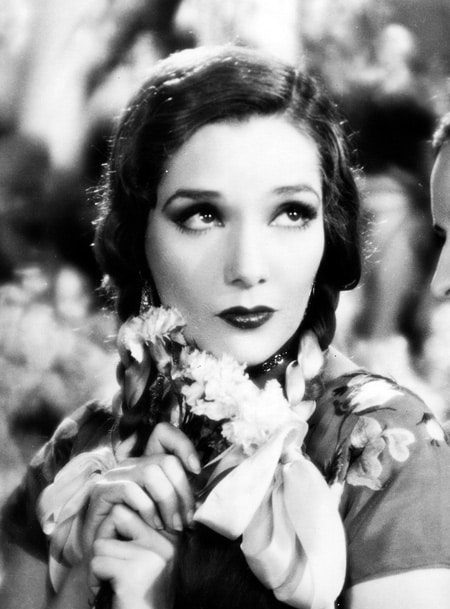What is the title?
The title is He Travels the Fastest, taken, as some more adept readers than I might guess, from a line of Rudyard Kipling's - "He travels the fastest who travels alone."
What is the genre? Time period?
The genre is most decidedly Comedy. 'Nough said. The time period is strangely specific for one of my books - 1930 in America, specifically starting in New York.
How is it written (POV, main character, etc.)?
I'll actually be trying my hand at something new for this one - third person omniscient. After much reflection on the matter, I now believe it is either impossible or quite difficult to write a splendid comedy in anything but a somewhat narrative style. (So, to m'dear Megan Chappie, yea, you have finally convinced me...)
What is the setting?
Like I said, 1930 in America. While starting in New York, it will traverse all along the country into California.
Who are the characters?
There are only a handful, really. The main character is
"Chess" Ridley, a middle-aged American traveling salesman. Having been relatively successful at his gig for many years and now being quite tired of the business (and busyness), he plans to retire quietly out West alone, traveling by himself. A nice, slow, leisurely trip West to some quiet, country home all to himself is the only castle on a cloud the practical (and rather grouchy) salesman allows himself. Finally, he's saved up enough that he can quit the business and do it... or, so he thinks.
Marquesa Helena de Marcos is an aristocratic widow recently immigrated illegally from Spain. Just escaped from Ellis Island, she is iron-set and determined to get to her alleged American relatives in California, whom she is quite convinced would make her immigration legitimate. She and her brood - did I mention her eight children? - have come to America knowing little to nothing about the country, other than some broken English and the praises of its faraway freedom... Her brood consists of...
Consuelo is the Marquesa's oldest daughter, a pretty young Spanish girl of twenty with a dry tongue and some very odd ideas about Americans. Unfortunately, she draws the eyes of American boys at the most inconvenient times...
Inez is the second daughter, seventeen, and also possesses the Spanish belleza. She does not like the looks of Chess or this country.
Nuncia is the third daughter, sixteen, who has a most intense fondness for "Senor Ridley," who she believes to be in truth a kind and artistic soul... Needless to say, Senor Ridley doesn't exactly share the sentiment.
Alfonso is the oldest son, fifteen years old, and is extremely protective of the family... to the point of almost getting in a fist fight with every relatively grown male who looks at them funny.
Clemenz is the second oldest son and fifth child, at eleven. He also loves a fight, though more for its own sake. He tries ardently to pick up American phrases, but usually fails.
Constanza is the fourth daughter and sixth child, at nine. She is fairly quiet, but seems to possess the singular characteristic of never seeing when the little ones do something mischievous...
Miguel, third son and seventh child, has to be the naughtiest boy alive. Only his mother's looks save him from being utterly throttled. He is nearly six.
There may be other assorted small recurring characters, but non relevant enough to mention.
What does the plot consist of?
As hinted above, the plot begins with Chess's resolve to take a long, slow trip West to lone retirement. His fate changes, however, when he runs into the family of illegal immigrants, and they attach themselves to him with a will, thinking he can guide them to California. Thus, the trip across the country begins, with plenty mishaps, misunderstandings, and misadventures along the way, all while being distantly chased by the police.
What gave you the idea?
Eh. Sorta the title. A good title really inspires a novel like nothing else. I always liked the idea of an ironic title, and the best path of irony according to that quote is to make poor Chess travel as un-alone as possible.
Who are the favorite characters so far?
Seeing as only my writing confidante and Madam Megan have seen even the rough sketches of what it will be like, there's not really a good answer. Possibly Chess.
What is the favorite scene so far?
None, since it's just an archive idea, and there aren't any written yet.
Any drawings?
Not quite yet.
Any themes of music for the work?
Mmm... The possibilities tempt me, but, unfortunately, there are none as of yet.
Any snippets?
Nope.
Strong point in story?
It will probably be the theme.
Weak point in story?
At the moment, the research. I've done some preliminary stuff, but I will have to research a lot more before actually writing it.
What are your plans for it?
To draft it, once I get a few current WIPs knocked out.
Any particular writing habits for it?
As I haven't written it yet, no, not at the moment.
If it were made into a movie, what would be your ideal cast for it?
Unlike my other archive novel ideas, I actually have thought about this. I think either William Powell or Fred Macmurray would be best as Chess (it would have to be a slightly older, slightly more disheveled version of either of them, though). I particularly see William Powell in his hobo dress from My Man Godfrey, for some reason. For the Marquesa, I see an older Delores del Rio. I don't know about the kids, though.
***
Anyways, that's the end of the questions. I hope you enjoyed the post, and I can't wait to see everyone else's Meet the Books! posts. Don't forget to link them up back here so I can see!















